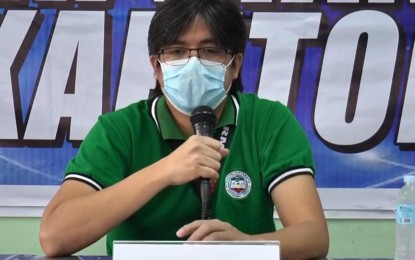
Siegfred Flaviano, head of the South Cotabato Provincial Environment Management Office (PNA GenSan file photo)
GENERAL SANTOS CITY – The provincial government of South Cotabato is pushing for the adoption of an innovative scheme that will provide proper compensation for the use of the area’s natural resources.
Siegfred Flaviano, head of the Provincial Environment Management Office (PEMO), said Wednesday they are currently crafting a proposed measure that will set off the full rollout of the “payment for ecosystem services” (PES) scheme in the province.
He said it will mainly require the payment of specific amount by users or recipients for various benefits provided by the environmental resources such as the mountains, forests and croplands in the area.
The official cited the case of companies and other local stakeholders that are directly at the receiving end of economically viable ecosystem services, among them the sustained supply of fresh water and protection from natural hazards.
Under the scheme, he said water concessionaires in the lowland areas would be charged “a certain centavo” per cubic meter for the use of the resource.
Flaviano said they are also working on mandating companies to pay a certain amount to compensate for the use of ecosystem resources within their areas of operation.
“The income that would be generated from it will be utilized to sustain our environmental programs, especially on reforestation,” he told reporters.
Flaviano said the local government, through their office, has already been implementing the scheme but on voluntary basis.
He said 11 companies situated in three municipalities in the area have been paying an undisclosed amount to support the province’s reforestation program.
PEMO uses the collected funds to provide livelihood to residents in the upland areas by paying them to plant trees as well as protect the forests, he said.
He said the move is aimed to prevent them from resorting to the destructive slash and burn or “kaingin” farming and other related activities.
The PES scheme, which was introduced in the country over a decade ago, has gained momentum in the past several years as a strategy to sustain local environmental protection and conservation initiatives.
Several local government units and agencies have adopted the arrangement for several vital resources but mainly on voluntary basis.
Flaviano said the provincial government has opted to make the scheme mandatory and institutionalize it through an ordinance.
He said it was among the priority measures earlier set in the province’s executive-legislative agenda.
“This will be a landmark measure for the province as we could be the first LGU that will have an ordinance about it,” he added. (PNA)
